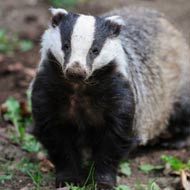More than 19,000 badgers culled in 2017

The culling is part of the government’s 25-year strategy to eradicate bovine tuberculosis.
More than 19,000 badgers were culled in 2017, according to new data published by the government.
The figures show that 19,274 badgers were killed by cage trapping and shooting across 21 target areas in Dorset, Cornwall, Devon, Gloucestershire, Herefordshire, Cheshire, Somerset and Wiltshire.
The culling is part of the government’s 25-year strategy to eradicate bovine tuberculosis, but conservationists argue there is no evidence to suggest that it is working.
Dominic Dyer, CEO of the Badger Trust, said: “After four years spending over £50 million in taxpayer’s money and the deaths of over 40,000 badgers, the government has never been able to demonstrate any conclusive evidence that the policy is working or that it ever will.”
He continues: “The vast majority of badgers killed have been free of the disease. Very few were ever tested and for those that were the government refused to release any figures showing how many had TB. The whole process is not just cruel and inhumane, it is completely indiscriminate.”
The Badger Trust is now calling on the government to provide “conclusive evidence” that the cull is reducing levels of TB in cattle.
The badger cull began in September 2013 in Gloucestershire and Somerset and has since expanded to the other counties. The government said that it achieved its minimum cull number and did not exceed the maximum.
The figures emerged as the government announced more frequent testing for bovine tuberculosis (bTB). Under the new rules, cattle herds in high-risk areas will require six-monthly routine TB testing.



 The latest
The latest